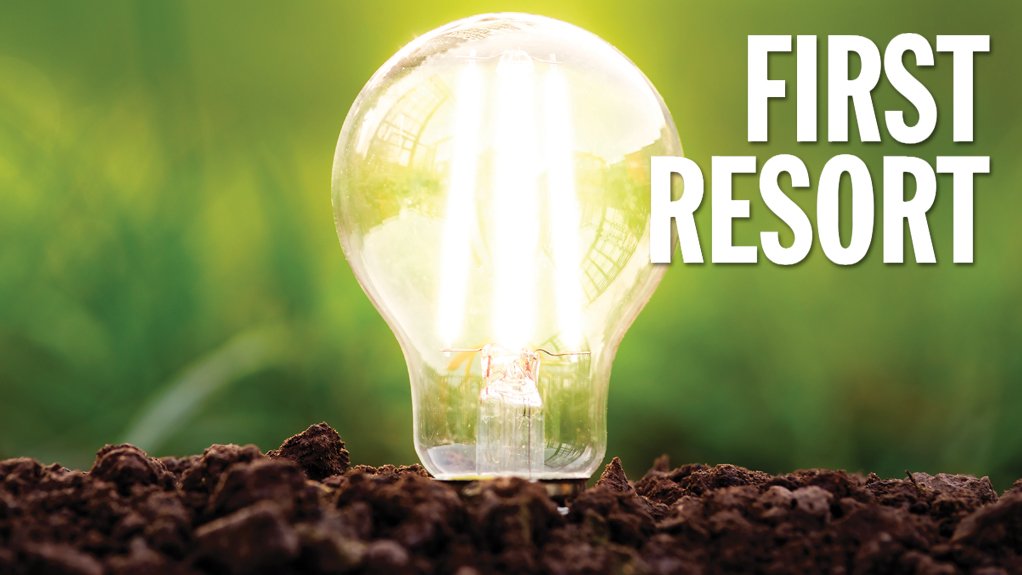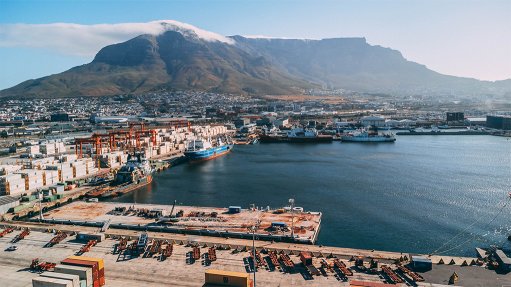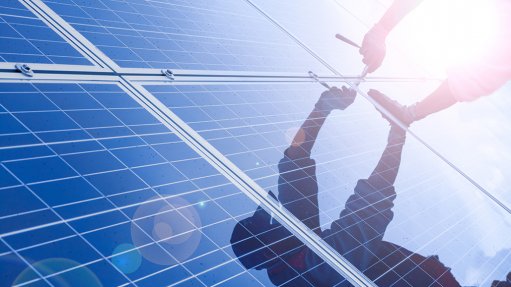Energy efficiency should be prioritised as South Africa walks supply tightrope
As the world looks to develop sustainable energy industries, mitigate the impacts of climate change and reduce greenhouse-gas (GHG) emissions, energy efficiency has been emphasised as an integral part of the efforts to attain these objectives.
Countries are falling well short of benchmarks, including those to reduce carbon emissions, with efforts having to be spurred on globally to ensure that targets are met.
South Africa is perpetually in the throes of load-shedding, as a result of which ensuring energy security has become increasingly important.
Speaking earlier this month, at industry organisation the Southern African Energy Efficiency Confederation’s (SAEEC’s) sixteenth annual conference, SAEEC president Keith Cassie said that instances such as load- shedding highlighted that South Africans understood and implemented energy efficiency.
At times of crises, energy efficiency could always be implemented, but this never seemed to be the first resort, he added.
He explained that while new energy capacity and renewable sources were good, and should be pursued, energy efficiency locally tended to be overlooked, with its value and importance underestimated.
Therefore, it should become a prominent part of the energy mix that the country is aiming for, rather than merely being a last- resort measure, he emphasised.
South African National Energy Development Institute (SANEDI) CEO Lethabo Manamela reiterated Cassie’s sentiments regarding energy efficiency.
While she welcomed the progress made to date – such as municipalities looking to bring independent power producers on board, discussions regarding small-scale modular nuclear reactors and the greening of public infrastructure spaces – she noted that these only focused on the supply side of energy.
Therefore, she too called for energy efficiency to be brought to the fore, emphasising that this should be the first tool used in the energy sector, and an integral part of the country’s solutions.
“We cannot talk about a resilient energy system in South Africa and exclude energy efficiency. The best kilowatt hour still remains the one that is not generated, irrespective of the source that it is being generated from.”
She said that exciting and promising developments regarding energy efficiency were under way globally across a variety of industries.
To benefit fully from these developments, Manamela called for government and the private sector to collaborate and use digitalisation tools to be truly revolutionary in this sphere, as “this will require a huge step up in the way we approach energy efficiency in the immediate and short term”.
This includes the urgent need to develop smart cities, as this will improve energy supply security, and a need to digitalise facets of people’s daily lives, such as education, transport and healthcare.
Although Manamela said there were “endless opportunities” in this regard, she noted that this would require collaboration, conducive policies, private-sector technology supply and academia to produce students with the requisite skill sets.
“If we get the balance right, there is no doubt that we would improve the overall performance of our energy system. This would reduce the negative environmental impact and create the new jobs needed to stimulate the economy, especially with the Covid-19 impact.
“We need to explore all avenues to engender a chance for the post-Covid-19 green economy we want to see. Digitalisation will be a game changer in ramping up energy efficiency globally,” she averred.
Speaking on energy efficient technologies, independent consultant Karel Steyn indicated that the kind of technology selected, as well as how it is used, would play a part.
Energy efficiency technology should be pursued, but it must be used efficiently to ensure full benefits, he said.
Meanwhile, this month also saw the Southern African-German Chamber of Commerce host the Energy Efficiency Showcase and Awards event, during which five projects received awards for their use of German technologies to enhance energy efficiency in local industry and buildings.
SANEDI project manager Teslim Yusuf said during the awards ceremony that the country had an energy-intensive economy that is heavily structured around and dominated by energy-intensive and energy-inefficient large-scale industries.
He emphasised that energy efficiency should be “the first thing that the country looks to” in trying to lower its carbon emissions, reduce its energy consumption and manage load-shedding, especially given the impact of this on the economy.
Skills Gap
Meanwhile, IEE Projects’ Sashay Ramharee highlighted that global energy efficiency has improved by 13% since 2016, and that studies show that primary energy consumption in South Africa could be reduced “drastically” through energy efficiency interventions in the industrial and commercial sectors.
However, there was a skills gap, with nontechnical building staff not understanding the potential that exists in energy efficiency, and technical workshops being too complex to relay this information.
Therefore, the government-funded National Cleaner Production Centre (NCPC) has developed energy best practice guides to provide a quick reference and summary of the opportunities in energy efficiency.
Ramharee enthused that these assisted businesses that were on the cusp of closing because of the high costs of energy, and called on building owners to peruse the NCPC guides.
He also touched on the ISO 50001 standard, which has been designed to support organisations in all sectors and aims to provide a practical way of improving energy use through the development of an energy management system.
Studies predict that cost savings of $600- billion can be achieved between now and 2030 through energy savings ensuing from adhering to this standard, which is the biggest contributor to energy savings in industrial projects, he noted.
“We are living in an uncertain world – we cannot control the global economy, prices and policies, but we can control how we use energy. Implementing energy efficiency is cheap, simple, flexible and delivers results,” Ramharee said.
This was reiterated by Green Building Design Group (GBDG) founder and CEO Songo Didiza, who highlighted that energy efficiency was the first fuel and real cost-saving opportunity towards offsetting the carbon tax.
One development in this regard is the 12L tax incentive, which, according to the Income Tax Act of 1962, provides an allowance for businesses to implement energy efficiency savings.
The savings allow for a tax deduction of 95c/kWh saved on energy consumption.
Didiza mentioned one case study in the tax incentive, where GBDG assisted a company in the clay brick industry.
This entailed implementing three energy- saving measures, namely, a burner system upgrade, variable-speed drive technology on the exhaust fan and waste heat recovery.
This led to energy savings of 10.33%, about nine-million kilowatt hours saved and 1 506 t carbon dioxide GHG mitigated.
Industry Success Story
Council for Scientific and Industrial Research research engineer Paseka Mabina outlined how energy efficiency and renewable energy were being used to make small and medium- sized enterprises in the tourism sector more sustainable.
The industry is a major employment provider, with its jobs tally in 2018 being about 1.5-million.
However, even before the Covid-19 pandemic, the country’s travel and tourism sector was facing challenges, owing to a weak economy, safety and security issues, as well as electricity and water supply challenges, he added.
Therefore, mitigating measures were crucial to ensure the recovery of the sector. This was especially important for guesthouses, which Mabina said remained at the forefront of the tourism industry, with there being relatively few hotels in the country, compared with other major tourist destinations.
One such measure is the Green Tourism Incentive Programme, launched by the Department of Tourism in 2017 to assist small tourism enterprises to adopt responsible practices through implementing solutions for the sustainable management and use of electricity and water resources.
Through this programme – managed by the Industrial Development Cooperation – government provided grant funding ranging from 50% to 90% of the total cost of the approved energy and water efficiency solutions, to a maximum of R1-million.
Mabina said that, since its inception, the programme has assisted 167 tourism enterprises with energy and water efficiency audits, and approved grant funding for 85 establishments across all provinces.
In terms of the energy management aspect of the programme, the methodological framework entails the installation of measurement instruments, as well as energy auditing.
Mabina explained that several factors influenced energy consumption in the hospitality industry, including the occupancy rate, ambient temperature, human behaviour, technical processes, the size of the establishment, the complexity and standard of services, geographic location and the services offered.
He noted that a lack of awareness on how energy was used in buildings was the major barrier to energy efficiency investment.
In this regard, air conditioning is the largest consumer, he indicated, accounting for more than 31% of the total energy consumed.
Mabina expanded on some general recommendations from audit reports that were undertaken, including an average 26% reduction in electrical energy use and a 24% reduction in costs from energy efficiency and behavioural changes.
Moreover, the reports indicate that total investment costs range between R100 000 and R500 000, depending on property size. The average total payback period is six years.
In terms of challenges, Mabina said that, while there was an awareness of the concept of energy conservation, the majority lack proper energy management skills.
A lack of awareness of the running costs of a building regarding energy consumption and of energy efficiency best practices, together with a misconception that high energy use is required to ensure guest comfort, are other challenges.
While maintenance staff were “extremely familiar with their facilities”, in some cases, they lacked the knowledge required to handle all the electrical systems in the facility, Mabina said.
Therefore, to improve on this, he called for regular energy audits, internal and external.
He also called for the installation of submeters in designated areas, the development of energy-saving and -use guidelines for staff and guests, the setting of energy consumption targets and thresholds, the regular monitoring of energy consumption levels, as well as energy-saving awareness and training programmes for staff.
South Africa has made good progress in energy efficiency interventions, across different industries and spheres; however, more must be done to capitalise on the opportunities presented by this, and to mitigate the environmental impacts of the energy industry.
Comments
Press Office
Announcements
What's On
Subscribe to improve your user experience...
Option 1 (equivalent of R125 a month):
Receive a weekly copy of Creamer Media's Engineering News & Mining Weekly magazine
(print copy for those in South Africa and e-magazine for those outside of South Africa)
Receive daily email newsletters
Access to full search results
Access archive of magazine back copies
Access to Projects in Progress
Access to ONE Research Report of your choice in PDF format
Option 2 (equivalent of R375 a month):
All benefits from Option 1
PLUS
Access to Creamer Media's Research Channel Africa for ALL Research Reports, in PDF format, on various industrial and mining sectors
including Electricity; Water; Energy Transition; Hydrogen; Roads, Rail and Ports; Coal; Gold; Platinum; Battery Metals; etc.
Already a subscriber?
Forgotten your password?
Receive weekly copy of Creamer Media's Engineering News & Mining Weekly magazine (print copy for those in South Africa and e-magazine for those outside of South Africa)
➕
Recieve daily email newsletters
➕
Access to full search results
➕
Access archive of magazine back copies
➕
Access to Projects in Progress
➕
Access to ONE Research Report of your choice in PDF format
RESEARCH CHANNEL AFRICA
R4500 (equivalent of R375 a month)
SUBSCRIBEAll benefits from Option 1
➕
Access to Creamer Media's Research Channel Africa for ALL Research Reports on various industrial and mining sectors, in PDF format, including on:
Electricity
➕
Water
➕
Energy Transition
➕
Hydrogen
➕
Roads, Rail and Ports
➕
Coal
➕
Gold
➕
Platinum
➕
Battery Metals
➕
etc.
Receive all benefits from Option 1 or Option 2 delivered to numerous people at your company
➕
Multiple User names and Passwords for simultaneous log-ins
➕
Intranet integration access to all in your organisation





















